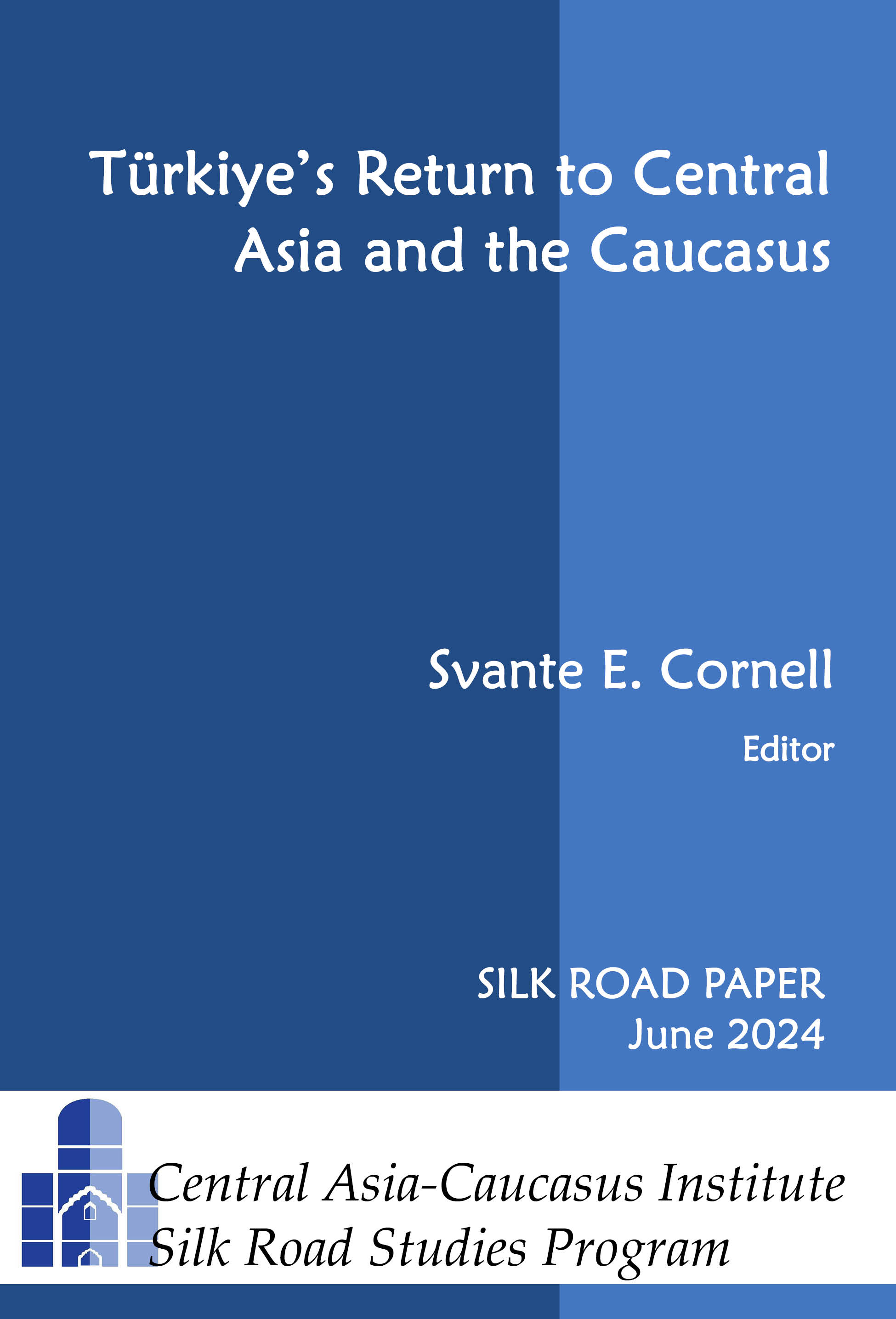By Svante E. Cornell, ed.
Central Asia-Caucasus Institute & Silk Road Studies Program
Silk Road Paper
July 2024
Introduction
When the Soviet Union broke up in 1991, a sense over euphoria swept over a Türkiye that had just seen its application to join the European Community rejected. The emergence of five Turkic-majority states in the Caucasus and Central Asia provided an alternative possibility to European integration: Türkiye could look east and seek to build a new confederation of Turkic states.
The idea was vigorously embraced but soon appeared stillborn for a number of reasons. For one, the Turkic nations of the former USSR had just gotten rid of one overlord and were not in the market for another. The sometimes haughty tone of Turkish officials toward them did not help either. Besides, Türkiye was beset by internal problems – a rising PKK insurgency in the southeast, a troubled economy with runaway inflation, and a surge of Islamist politics that frightened the secular leaders of Central Asia and Azerbaijan.
For two decades thereafter, Central Asia and the Caucasus did not figure prominently in Turkish foreign policy. Economic realities forced Türkiye to look again toward the EU in the 2000s. After consolidating power, Recep Tayyip Erdoğan and his AKP government turned south – jumping headfirst into the frayed politics of the Middle East, a region that would keep Türkiye preoccupied for over a decade. But a combination of internal and external shocks in the 2010s led to a domestic realignment in a nationalist direction, which also led to a renewed interest in the Turkic states of Central Asia and the Caucasus.
As this volume will detail, Türkiye has been actively pursuing its influence in the region bilaterally but also multilaterally, through the upgrading of Turkic cooperation with the creation of the Organization of Turkic States.
It is worth pausing for a minute on the ethnolinguistic aspect of Türkiye’s approach to the region. While Türkiye continues to maintain bilateral relations with non-Turkic states like Georgia and Tajikistan, there is a clear emphasis on ethnic and linguistic ties in Türkiye’s approach. In this sense, Türkiye differs markedly from Russian and Chinese approaches in Central Asia and the Caucasus. Because neither Russia nor China can appeal to common identity markers, these powers have focused mainly on economic and security issues as they have devised their regional mechanisms, such as the Eurasian Economic Union or the Shanghai Cooperation Organization. Whatever the faults of these instruments – and there are many – they are at least inclusive, in that they do not differentiate between regional states on the basis of identity. Türkiye’s approach, by contrast, stresses common identity markers and makes them central to its bid for influence in the region. Indeed, increasingly the language used both during OTS meetings and in bilateral meetings of Turkish and regional leaders stressed “brotherhood” of fellow Turkic peoples. This is in one sense an asset that other regional powers cannot compete with. On the other hand, emphasizing the ethnolinguistic commonality between Türkiye and Turkic peoples risks alienating the non-Turkic peoples of the region and feeding the existing sentiments in Georgia and Tajikistan – not even to speak of Armenia – countries whose own nationalist narratives have been motivated in part by enmity against Turks, past or present.
That being said, Türkiye’s renewed involvement with Central Asia and the Caucasus is one of the most significant developments in the region in the past several years. It complements the rise in regional cooperation in Central Asia, as well as between Central Asia and Azerbaijan. And importantly, at a time when relations between the West and Russia are at an all-time low and Western relations with China are deteriorating, Türkiye’s growing influence in Central Asia and the Caucasus provides much-needed opportunities for regional leaders to expand their international relations. In the foreign policy strategy adopted by regional leaders, balance is key. Their continued sovereignty and independence depends on establishing relations with other powers that help counterbalance their relations with Russia and China. Since the U.S. and EU have thus far been unwilling to provide enough of a regional presence to generate such a balancing force, Türkiye’s involvement is a welcome opportunity for regional states to build ties with outside powers that are not shy to get involved in security and military affairs.



